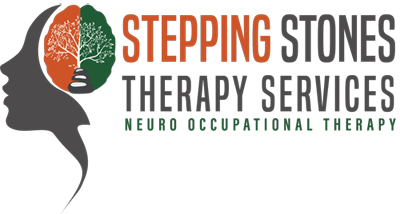Cognitive fatigue is more than tiredness. It’s the mental and physical exhaustion that builds when your brain is working harder than it used to, often after illness, injury or ongoing health conditions. You may find that your energy disappears without warning, that thinking clearly becomes a struggle, or that even everyday tasks feel overwhelming.
If these symptoms feel familiar, you’re not alone. At Stepping Stones, I offer one-to-one support to help you understand what’s going on and find practical, manageable ways to feel more in control. Get in touch to book your free 15-minute consultation.
What Is Cognitive Fatigue?
Cognitive fatigue is the gradual wearing down of your mental stamina. It’s often linked to neurological conditions, injury, or long-term stress. You might feel mentally drained after simple tasks, or find your concentration slipping much sooner than it used to. This can be incredibly frustrating, especially when your body looks “fine” on the outside.
Over time, this kind of fatigue can affect your memory, mood and motivation, making life feel harder than it needs to be.
Common Symptoms of Cognitive Fatigue
Symptoms can vary from person to person, but here are some of the signs to watch for:
- Brain fog — that sense of fuzziness or clouded thinking
- Forgetfulness — missing appointments, misplacing things or losing track of conversations
- Slower processing — taking longer to read, write or respond
- Irritability — feeling overwhelmed or snapping more easily
- Low motivation — struggling to start or finish tasks
- Drowsiness or yawning — especially during mental activity
- Emotional exhaustion — feeling flat, drained or on edge
These symptoms often get worse with mental effort and better with rest, but rest alone may not be enough.
Physical Signs of Cognitive Fatigue
Cognitive fatigue doesn’t just affect your thoughts. It shows up in your body too. You may notice:
- Heavier limbs or a “slump” in posture
- Eye strain or headaches
- Sensitivity to noise or light
- Slower reaction times
- A general sense of physical exhaustion despite having “done nothing”
These physical symptoms can be mistaken for laziness or lack of sleep, but they often signal deeper challenges with mental energy and recovery.
Brain Fog and Mental Exhaustion
“Brain fog” is a common way people describe the fuzziness that comes with cognitive fatigue. You may feel as if your thoughts are stuck in treacle — you know what you want to say or do, but just can’t reach it.
This fog can make even simple decisions (like what to eat or wear) feel daunting. It can interfere with work, relationships and everyday activities. And it often comes and goes, making it harder to plan your day or trust your energy levels.
Possible Causes of Cognitive Fatigue
Cognitive fatigue can arise from a range of causes, including:
- Neurological conditions like stroke, brain injury, dementia or multiple sclerosis
- Chronic fatigue syndrome
- Mental health conditions such as anxiety and depression
- Long-term stress or burnout
- Sleep disorders
- Hormonal changes or illness
In many cases, the brain is working harder than usual to complete tasks, using more mental resources to compensate for changes in function or processing.
The Role of Sleep and Stress
Lack of sleep and ongoing stress can both worsen cognitive fatigue. Without enough rest, your brain doesn’t get time to repair and reset, which can affect everything from memory to mood.
Chronic stress increases levels of cortisol, a hormone that can impact sleep quality and energy. The combination of poor sleep and high stress often creates a cycle that’s hard to break without support.
Managing Energy and Activity Levels
Occupational therapy helps you understand your energy patterns and take control of how you use them. Strategies may include:
- Pacing — learning to break up mental activity with regular short breaks
- Prioritising — choosing what’s essential and what can wait
- Planning — using tools like calendars, reminders and checklists to stay organised
- Monitoring — tracking your energy and symptoms to spot patterns
These techniques help reduce overwhelm and make everyday activities more manageable.
Relaxation Techniques for Fatigue
Relaxation is more than rest. It gives your nervous system time to reset. Techniques we might explore include:
- Progressive muscle relaxation
- Mindfulness or meditation
- Gentle breathing exercises
- Sensory breaks — stepping into a quiet, calming space
- Short walks or stretching
Relaxation techniques can improve sleep, reduce irritability and help you feel more grounded throughout the day.
When to Get Support
If your fatigue is affecting your daily activities, work, or relationships — even in small ways — you don’t have to wait for a formal diagnosis to seek help. Occupational therapy can support you to understand what’s happening and build strategies that fit your life.
This includes practical help with:
- Return to work planning
- Home routines and independence
- Daily tasks like cooking, cleaning or driving
- Mental health and emotional wellbeing
How Stepping Stones Can Help
At Stepping Stones, I offer specialist occupational therapy for adults recovering from brain injury and other neurological conditions.
Together, we can work to improve your quality of life, whether you’re navigating early recovery, planning your return to work, or just trying to feel more like yourself again.
Support is available across Kent, London and Surrey, with home visits or remote appointments to suit you.
Let’s Talk
If you’re struggling with cognitive fatigue or brain fog, you’re not alone, and you don’t have to push through it without help.
I offer a free 15-minute phone consultation where we can talk about your experience and explore what kind of support might help. You can also read more about my work and how occupational therapy may help you feel more capable and in control again.

